
By Kyleanne Hunter and Oliver Kaplan
The Opening Ceremonies of Olympic Winter games in Sochi went off without a hitch and we have already beheld some spectacular events. But now the real test begins, as the news cycle has still been abuzz about the prospect for terrorist threats by Islamist extremists from the nearby republics of Chechnya and Dagestan. With athletes, spectators, and international dignitaries spread across various venues and Sochi’s varied terrain, security is a logistical challenge. Fortunately, there’s actually an entire sport and Olympic event dedicated to ski security. No, it’s not Curling. It’s the Biathlon.
One of us analyzed the terrorist threats to skiing in a previous post. One mechanism was only peripherally touched on: ski troops. The sport of Biathlon was in fact referred to officially as “winter military patrol” until 1960 and is steeped in military history, as Northern European nations relied on ski patrols to protect remote borders from invasion.
These early patrolmen not only had to be adept skiers that could navigate rough terrain and extreme conditions, but were also early terrorism experts. Patrolmen were charged with distinguishing common hunters and trappers from nefarious advance party scouts, and reading behavior and quick decision-making in demanding environments became their hallmark (e.g., Thomas P. Govan’s Training for Mountain and Winter Warfare; US soldiers manning checkpoints in Iraq also more recently had to master these same skills). Specialty military training centers were created and dedicated to the craft of long-distance skiing, precision shooting, and tactical expertise.
Military manuals from Norway, Sweden and Denmark dating back to the 1600s detail the training and standards requirements for members of these patrols. In the 17th and 18th centuries, ski patrols became a prominent form of local defense for minor royalty throughout Europe and were sources of pride for royal families. Beginning in 1792, royal families began to wager on the effectiveness and efficiency of their patrols, holding competitions lasting anywhere from 2 hours to several days. It was out of these competitions that modern biathlon was born.
Although biathlon has become a specialty sport, it has not deviated far from its military roots. Norway, Denmark, Sweden and the UK all still require biathlon training for their infantry units, and it is a point of pride to have their soldiers at the starting line of the Olympics. The harsh conditions of winter in Afghanistan also revitalized mountain warfare training centers in many NATO nations, including the US Army’s 10th Mountain Division and the Marine Corps’ Mountain Warfare Training Center.
Given the historical lineage of biathlon and the current connection to the military, biathletes could provide a perfect, organic security force for the Olympic Games. Here’s how:
- Biathletes are a highly portable form of security. Sochi’s transportation problems have been highly criticized, from the vulnerability of the road network to the lack of viable infrastructure. But roads? Biathletes don’t need roads! They can maneuver in snow and travel at speeds of 55-60kph, definitely exceeding that of a car stuck in Sochi traffic. Having a counterterrorism force that can be anywhere, quickly, is essential for security.
- Biathletes are fit. The apparent lack of fortitude of the “beefed up” Russian security forces has been the subject of many jokes. There are memes of the generally uninvolved police eating donuts and taking copious smoke breaks, or dressed more like Barney the Dinosaur than a legitimate police force. By contrast, twelve-time Olympic medalist Ole Einar Bjoerndalen (Norway) has described his training regime as the “most grueling in all of sport.” There is no fear of biathletes being lazy, inattentive, dressed like a children’s toy or distracted by donuts and cigarettes.
- Biathletes bring state presence. The nations that are competitive in the biathlon also happen to well-respected counterterrorism experts. Scandinavian countries such as Norway and Denmark have been integral parts of the ISAF mission in Afghanistan. Their leadership roles in the training missions and commitment to their enduring mission success are a testament to the dedication of these nations in the counter-terrorism fight.
- Insider security. As athletes, the biathletes live in the Olympic Village and can blend in with the crowd, providing additional, under-cover security presence.
So, even though the biathletes may not have their rifles at hand during the entire Olympics, it is reassuring to know they are there and ready. The fact that the seaside town center of Sochi itself has no snow cover to ski on is but a minor inconvenience.
Kyleanne Hunter is an MA Candidate at the Josef Korbel School of International Studies at the University of Denver.

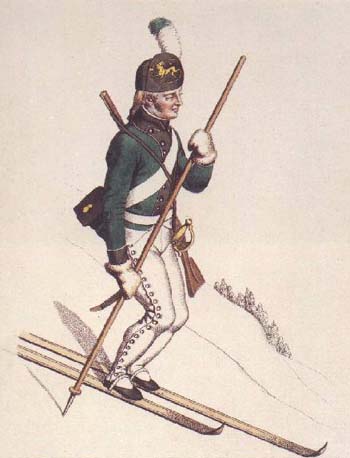

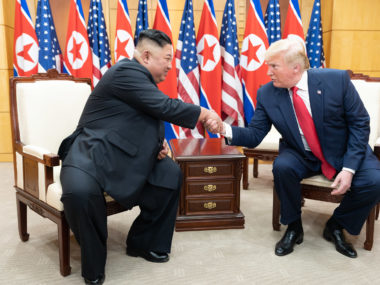

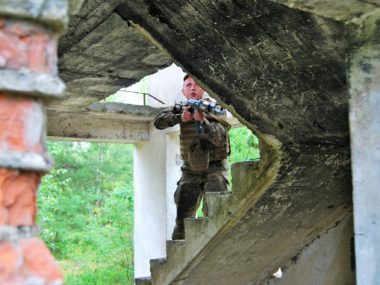
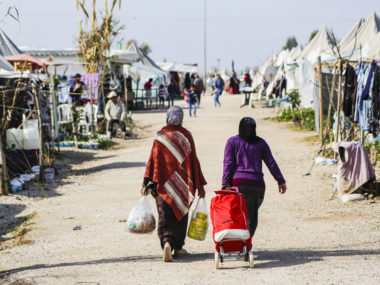
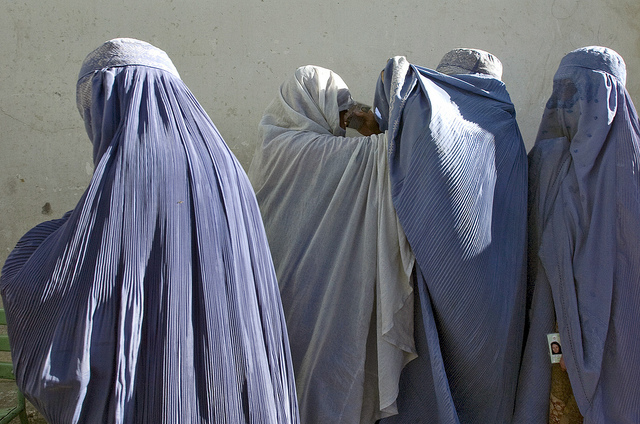
1 comment